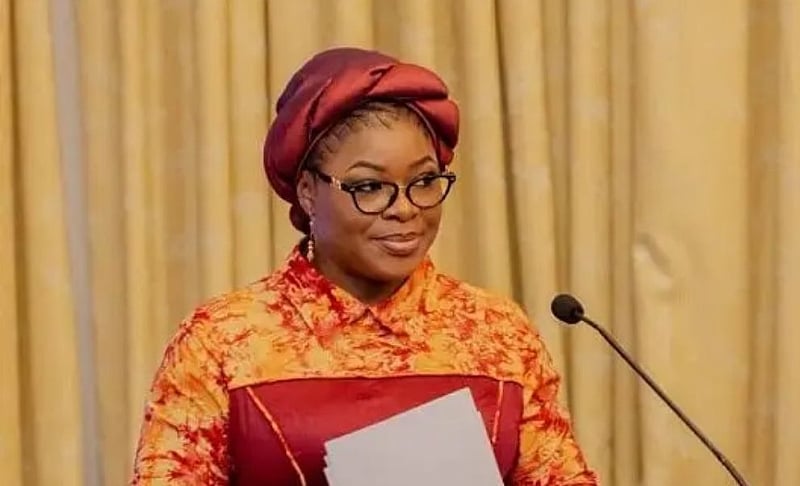Shamima Muslim, Deputy Presidential Spokesperson, has launched a scathing critique of the New Patriotic Party (NPP), accusing the opposition party of harboring ill intentions towards Ghana and actively undermining its progress. She contends that the NPP’s consistent negativity and pronouncements, particularly from its communicators, betray a disregard for national unity and a deep-seated desire for the country’s failure. This pattern of behavior, she argues, is evident both when the NPP is in power and when it serves as the opposition. Muslim posits that the NPP’s actions are not merely political maneuvering but reflect a fundamental lack of goodwill towards the nation itself.
The catalyst for Muslim’s pointed remarks was a statement made by an NPP communicator, Tabitha, who allegedly suggested that Ghana was on the precipice of civil war. Muslim condemned this statement as reckless and irresponsible, asserting that such rhetoric fuels instability and undermines the very fabric of Ghanaian society. This incident, according to Muslim, is emblematic of the NPP’s broader strategy of negativity and fear-mongering. She contends that the NPP, rather than engaging in constructive discourse and offering solutions to national challenges, prefers to sow discord and capitalize on anxieties for political gain. This, she argues, is a disservice to the Ghanaian people and a betrayal of the fundamental principles of democratic governance.
Muslim drew a stark contrast between the NPP’s purportedly destructive approach and the NDC’s attitude towards its political rivals. She emphasized that the NDC, despite political differences, genuinely desires the success of the NPP government. This, she explained, stems from the understanding that the progress of a democracy is a continuous process built upon the achievements of successive administrations. A successful NPP government, she argued, would ultimately benefit the entire nation, allowing the NDC to further build upon that foundation when they return to power. This perspective, Muslim believes, reflects a mature and responsible approach to governance, prioritizing the nation’s well-being over partisan interests.
Muslim’s accusation highlights a broader concern about the tone and tenor of political discourse in Ghana. The increasing polarization and tendency towards inflammatory rhetoric pose a significant threat to national unity and stability. While political competition is a healthy aspect of any democracy, it must be conducted within the bounds of respect and a shared commitment to the nation’s best interests. When political discourse descends into personal attacks, fear-mongering, and predictions of doom, it undermines the very foundation of democratic governance.
The debate surrounding the NPP’s intentions and the NDC’s response underscores the importance of fostering a more constructive and collaborative political environment. Ghana’s progress depends on the ability of its political leaders to engage in respectful dialogue, find common ground, and work together to address the nation’s challenges. A focus on shared goals and mutual respect is essential to building a strong and prosperous future for all Ghanaians.
Furthermore, Muslim’s assertion raises critical questions about the role of political communication in shaping public perception and influencing political outcomes. The use of inflammatory language and unsubstantiated claims can have a detrimental impact on public trust and erode confidence in democratic institutions. It is essential for political actors to exercise responsibility in their communication and prioritize accurate information over sensationalism. A healthy democracy requires a well-informed citizenry capable of making informed decisions based on facts and reasoned arguments, not fear and misinformation. The responsibility for fostering such an environment rests not only with political parties but also with media outlets and civil society organizations, all of whom play a crucial role in shaping public discourse.














